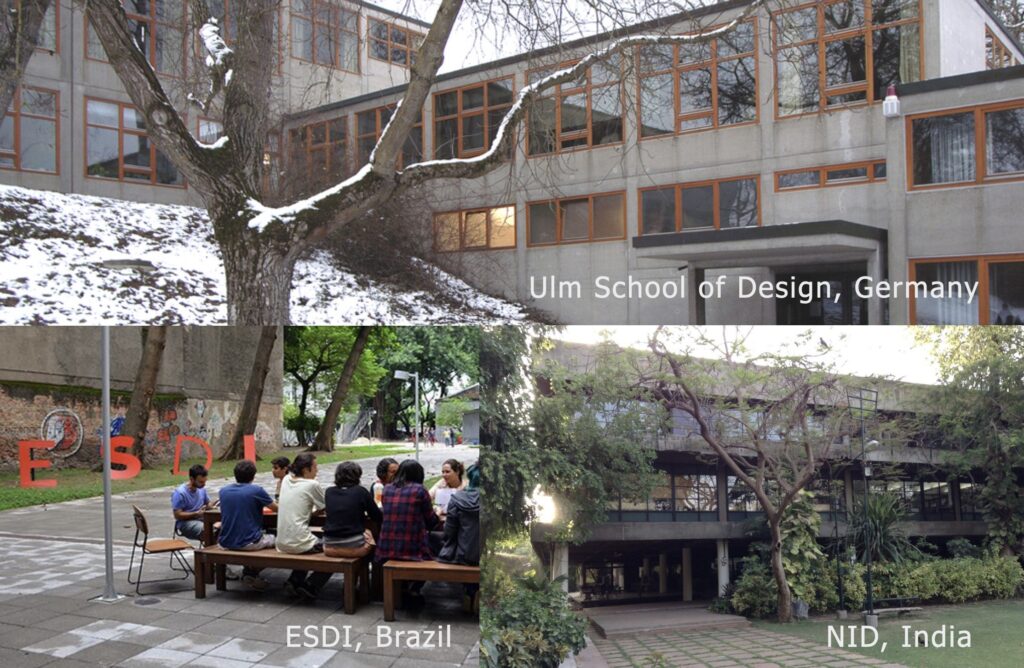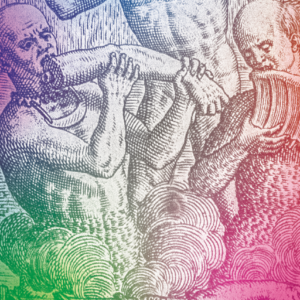Abstract: The future is an ideology that preserves colonial and imperialist relations in the Global South. Design education can counter this ideology by encouraging the development of many futures of design education, through cultural hybridism, dialogue, and other ways of confronting the global South with the global North realities. This conversation starter was proposed to the Futures of Design Education series organized by DRS Pedagogy SIG.
Audio
Video
Full transcript
A different perspective—the Global South perspective—on the futures of design education. That’s what I’m going to talk about a little bit and hopefully provoke some nice conversations with you.
There’s a lot of discussion nowadays in design academic conferences and papers about the future of design education. It’s often framed as a grandiose vision, one that sometimes imagines the whole world as a design studio—breaking out of the traditional studio, addressing global problems, and extending beyond the university to reach parts of society that have not yet been involved in design education.
In doing so, the materiality of design, its business aspects, and its work become more abstract. Instead of dealing with physical things, we deal with relationships. The design material, in this sense, is increasingly social relations that can be designed. Ultimately, the goal of this envisioned future—this grandiose future of design education—is to design systems: socio-technical systems, and complex adaptive systems.
The problem is that grand visions of the future have been historically used as an ideology in the Global South for centuries to legitimize colonization, neo-colonization, and imperialism. For example, in Brazil, where I am speaking from, we have a design school that was established in the 1960s called ESDI. It was essentially modeled after the German system of Ulm, with some professors coming from Germany to teach. This was part of a broader modernization process in Brazil but ultimately reproduced neo-colonial relationships. This phenomenon was not limited to Brazil—the same happened in India with the establishment of the National Institute of Design (NID), which followed a very similar model.

We have written about this ideology of the future, but here, I want to focus on something else: a counter-project to the ideology of the future. This is the Global South’s project of globalization—one that seeks to make room for many futures, many worlds, and many studios, all connected through solidarity practices. This idea has been explored by scholars such as Arturo Escobar, Boaventura de Sousa Santos, and earlier thinkers like Milton Santos.
Inspired by this Global South perspective on globalization, we have been developing the Anthropophagic Studio here in Brazil, which is the topic of the paper I suggested for reading and discussion today, for those interested. The Anthropophagic Studio is an attempt to localize the design studio methodology, particularly in the field of interaction design, by incorporating cultural specifics from Brazil. It draws on the concept of cultural cannibalism—assimilating foreign ideas into local traditions by digesting them, offering an acidic critique, and integrating them into our ways of thinking. Instead of merely importing ready-made concepts, we create something that resonates with our cultural reality.
This results in a fusion of approaches, such as Theater of the Oppressed, Pedagogy of the Oppressed, hacking as gambiarra, and various other creative strategies. One aspect I’d like to highlight is the digital version of the Anthropophagic Studio, which we call the Corais Platform. We originally developed Corais in 2011 as an outreach initiative at the Faber-Ludens Institute, where we first started experimenting with the Anthropophagic Studio. This platform includes a variety of online collaborative tools built on open-source software and Creative Commons principles. It enables any community to create its design studio, supported by a Wiki-style knowledge base containing abstracted knowledge, various methods, and techniques that can be applied across different fields—not just in design.

Additionally, the platform incorporates social networking elements and multiple toolkits, not just a single prescribed method. Since it follows an open-design approach, users can copy, modify, and adapt it to fit their specific needs. So far, we have hosted more than 700 projects from social movements, Indigenous communities, and popular educators across Brazil and other Latin American countries.
Reflecting on this experience, I find it very fitting that your DRS SIG initiative is called Futures of Design Education—in the plural. This framing truly supports a pluriversal approach, which aligns with the interests of the Global South. Speaking of Global South initiatives, they strongly emphasize that futures should be locally grounded and politically engaged. This stands in contrast to the Global North’s tendency to promote a singular, dominant future paradigm—what Tony Fry has critically examined as the “defuturing” program, driven by industry and capitalist markets. These approaches erase and cancel out alternative futures, especially those emerging from the Global South.
So, these are my references, and I will share the PDF link in the chat for anyone who wants to check them out.
References mentioned
Escobar, A. (2018). Designs for the pluriverse: Radical interdependence, autonomy, and the making of worlds. Duke University Press.
Fry, T. (2020). Defuturing: A New Design Philosophy. Bloomsbury Publishing.
Gonzatto, R. F., van Amstel, F. M., Merkle, L. E., & Hartmann, T. (2013). The ideology of the future in design fictions. Digital creativity, 24(1), 36-45.
Santos, M. (2017). Toward an other globalization: from the single thought to universal conscience (Vol. 12). Springer.
de Sousa Santos, B. (2018). The end of the cognitive empire: The coming of age of epistemologies of the South. Duke University Press.
Van Amstel, Frederick, and Rodrigo Freese Gonzatto. “Design Livre: designing locally, cannibalizing globally.” XRDS: Crossroads, The ACM Magazine for Students 22.4 (2016): 46-50.
Van Amstel, Frederick M.C and Gonzatto, Rodrigo Freese. (2020) The Anthropophagic Studio: Towards a Critical Pedagogy for Interaction Design. Digital Creativity.

